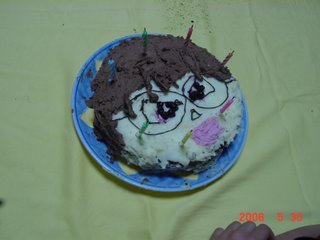More Thoughts on Education
At the deaf school, it was hammered into the mothers that our children's success in school, nay, in life, depends on our efforts. (No one expects the fathers to do anything, by the way.) When Lilia was three (!), her teacher was always telling me that if I couldn't find a way to make her buckle down and study, she could forget about college. (I'd said that my future hope for my daughter was that she go to college...)
I never really had any problems with school. Everything came pretty easily to me, so I'm a little frustrated by my kids' difficulties with basic math. Also, it drives me mad when Lilia's teacher insists that I teach her math because there isn't enough time at school to work on it. I am not the special ed teacher! We send Lilia to deaf school where she works one on one with her teacher because she needs help.
For the record, I believe in the value of education. I want them to learn all this stuff. I help them with their homework every night. I guess I'm worried that I won't measure up.



